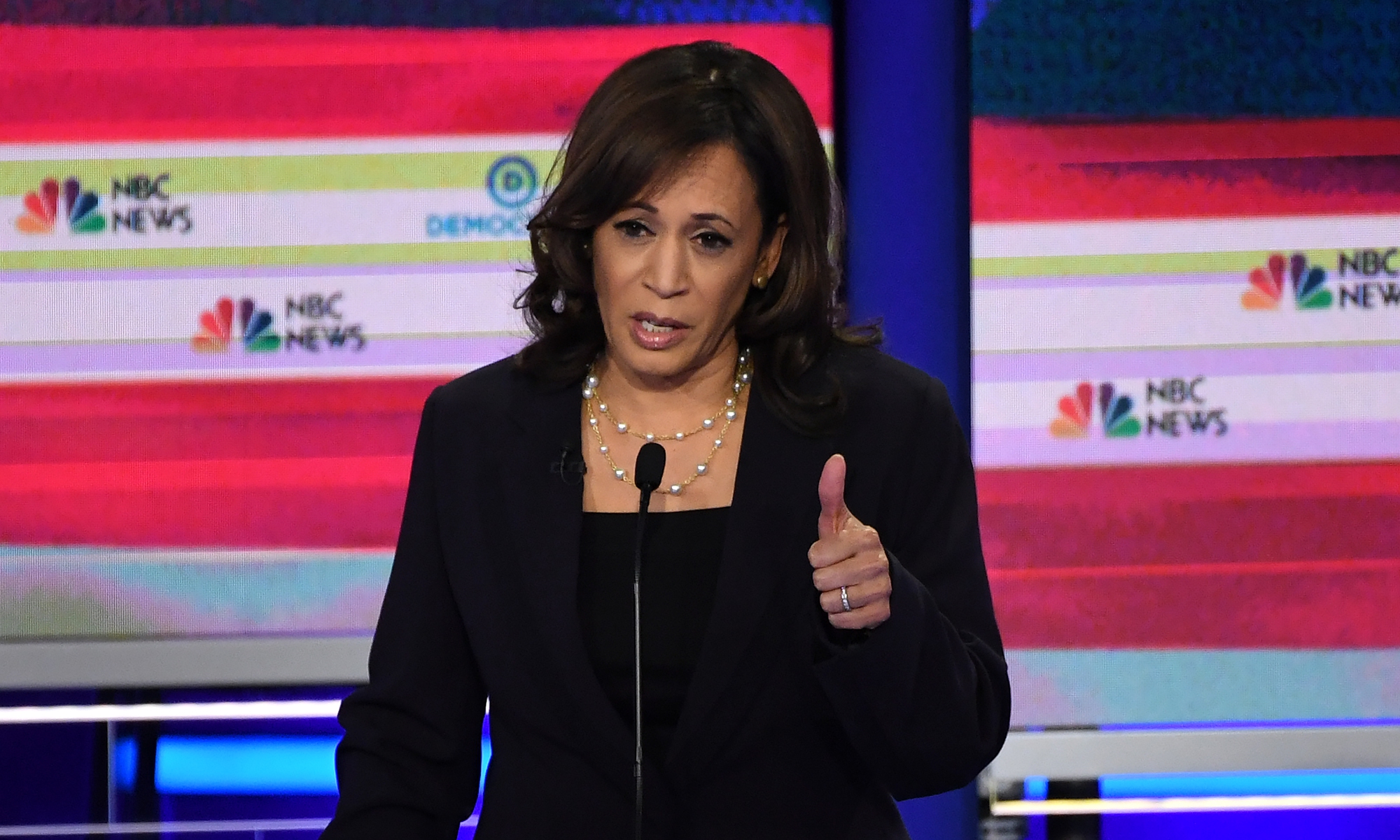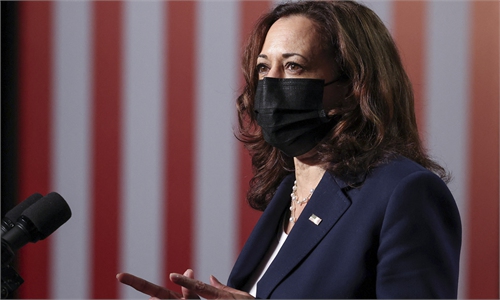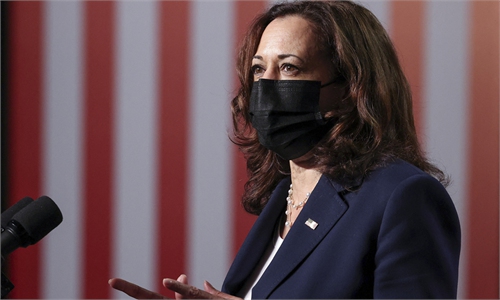Harris’ remarks in the Philippines ‘a petty move’ to inflame conflict over S.China Sea: experts

Kamala Harris Photo: AFP
US Vice President Kamala Harris on Tuesday arrived in Palawan province in the Philippines, the highest-ranked US leader to visit the island. Chinese observers said Washington is seeking to deliberately inflame the conflicts between Manila and Beijing, and warned that if the US is really committed to avoiding miscalculations with China, it needs to refrain from such petty moves of egging on other countries.
Harris said on Tuesday that her trip to Palawan underscored a need to uphold international rules and norms in the area and around the world. Harris also said the US stands by the Philippines in the face of intimidation and coercion in the South China Sea.
The vice president also met with fisherfolk and members of the Philippine Coast Guard.
Harris's trip to Palawan came a day after she held talks with Philippine President Ferdinand Romualdez Marcos in Manila, where she emphasized that the US has an "unwavering" commitment to the Philippines. Harris is the highest-ranking American official to visit the Philippines since Marcos assumed office in June.
In response to Harris's visit to Palawan, Zhao Lijian, spokesperson of China's Ministry of Foreign Affairs said at a Tuesday briefing that China insists that exchanges between countries should seek to promote mutual understanding and trust between regional countries and help to stabilize regional stability.
"We don't oppose the normal exchange between US and the Philippines, yet such interaction should not damage other countries' interests," Zhao said.
Harris's remarks in Palawan were seen by Chinese observers as a veiled provocation toward China. "Her visit to the Philippines aims to strengthen defense cooperation with Manila after bilateral ties were fractured under the rule of Rodrigo Duterte, Marcos' predecessor. And her hyping of the South China Sea issue during her visit serves to tell the Philippines and other Southeast Asian countries that they are not safe if they are not under the US' defensive umbrella," Li Haidong, a professor at the Institute of International Relations at the China Foreign Affairs University, told the Global Times.
"Although the Philippines, being a traditional defense ally of Washington, is willing to upgrade defense cooperation with the US, it won't dance with the US' provocative rhetoric on the South China Sea," said Zhu Feng, a professor of international relations at Nanjing University, explaining that regional countries have showed strong willingness to bring the South China Sea issue under control in recent years.
When asked whether Beijing might see Harris's trip to Palawan as a provocation, Marcos downplayed that possibility. "It's very clearly on the Philippine territory," he told reporters at APEC last week, according to Manila Times. "I don't think it will cause problems."
Li pointed out that when the leaders of China and the US met in Indonesia earlier this month, US President Joe Biden stressed that the US does not seek to revitalize alliances against China. "If Washington really means that, it should avoid committing petty moves such as egging on regional countries to counter China and hyping South China Sea-related issues to disturb regional stability," Li said.



